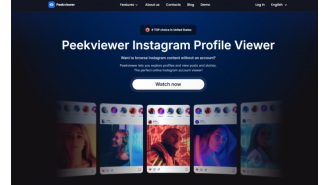Black Americans are refusing to shop at large retail stores in protest, choosing to use their money as a form of resistance.
Rebecca Renard-Wilson no longer shops at Target or Amazon, including Whole Foods and Amazon Fresh.

Rebecca Renard-Wilson, a mother of two, has recently made a conscious decision to stop shopping at big-box retail stores such as Target and Amazon. Instead, she has turned to farmers' markets, small mom-and-pop shops, and direct-to-consumer websites for her shopping needs.
According to Renard-Wilson, her choice to shop elsewhere has not only opened up new relationships and connections within her community, but it has also allowed her to put her money towards businesses that align with her values. She sees this as a win-win situation, as she is able to both resist places that do not value her community and support those that do.
Renard-Wilson is part of a growing group of African Americans who have also decided to boycott big-box retailers. This trend has been brought on by the rollback of diversity, equity, and inclusion (DEI) programs by these corporations. In February, over 250,000 people pledged to boycott Target after Pastor Jamal Bryant called for a "Target Fast" in response to the company's lack of commitment to DEI.
This boycott has since evolved into a larger movement on social media and within neighborhoods, all with the goal of rejecting systems that do not value the African American community. And it has already had an impact - Target reported a $500 million loss in sales in the first quarter of the year, citing a reaction to the boycott and decreased foot traffic.
This shift in consumer behavior can also be attributed to the elimination of DEI programs by the federal government and major retailers, following the lead of President Donald Trump. In 2020, after the killings of George Floyd, Breonna Taylor, and Ahmaud Arbery, many companies made pledges to prioritize diversity and inclusion. Target, for example, committed to investing $2 billion in Black-owned businesses and increasing their spending with Black-owned suppliers by 50%.
However, as racial justice fatigue set in and Trump was re-elected, these promises seemed to lose their meaning. Pastor Bryant, who partnered with the U.S. Black Chamber of Commerce, called out Target for reneging on their commitment to the Black community. He urged people to support Black-owned businesses instead of shopping at Target.
For Renard-Wilson, the decision to boycott Target was not an easy one. She has friends whose products are sold at Target and enjoys supporting their businesses. But when she learned about the boycott, she felt conflicted. Some argued that boycotting Target would harm the very Black, queer, and Latino creatives that the boycott aimed to support.
However, for Renard-Wilson, the retailers' elimination of their DEI programs demonstrated that they do not truly care about minority communities. And although it may be more convenient to shop at places like Target and Amazon, she has found alternative options that align with her values.
Renard-Wilson now primarily shops at Costco, which has reaffirmed its commitment to DEI. And when she can't find what she needs there, she turns to small local businesses or buys directly from the source online. She even found a deodorant she loves from a Black woman-owned company.
Despite the potential financial cost of not shopping at big-box retailers, Renard-Wilson has found that her credit card bill has actually decreased by $2,000 since she stopped shopping at these places. And while there have been a few instances where she had to pay a little more for products, she sees it as a small price to pay to support businesses that align with her values.
Renard-Wilson acknowledges that her family is currently in a privileged financial position to be able to explore alternative shopping options. But for her, it's about more than just the cost - it's about standing in righteous indignation against racism and sexism and using her money to make a difference.
Rebecca Renard-Wilson, a mother of two, has recently made a conscious decision to stop shopping at big-box retail stores such as Target and Amazon. Instead, she now chooses to support local businesses and purchase directly from product websites. In her own words, she explains that she now has more options on where she puts her money.
While these big-box stores may have been convenient for her in the past, Renard-Wilson has found that shopping at smaller, independent businesses has opened up new relationships and made her feel more connected to her community. By not supporting these corporate giants, she is able to use her money to resist places that don't align with her values and instead support those that do. In her eyes, it's a win-win situation.
Renard-Wilson is not alone in her decision. According to The Economic Hardship Reporting Project and The Guardian, there is a growing trend among African Americans to boycott big-box retailers that have rolled back their diversity, equity, and inclusion (DEI) programs. This shift in consumer behavior has been fueled by a shared goal of rejecting systems that do not value the African American community.
One example of this is the boycott of Target, which was initiated by Pastor Jamal Bryant of New Birth Baptist Church. He called for a 40-day "Target Fast" at the start of the Lenten season, and it has since evolved into a nationwide movement. As a result, Target has reported a significant decline in sales and foot traffic in the first quarter of this year.
This boycott has been driven by the elimination of DEI programs in various industries, including retail. Following the deaths of George Floyd, Breonna Taylor, and Ahmaud Arbery in 2020, many companies pledged their commitment to diversity practices. Target specifically committed to investing $2 billion in Black-owned businesses and increasing their spending with Black-owned suppliers. However, when they eliminated their DEI programs in January, it was seen as a betrayal of their promise.
Bryant partnered with the U.S. Black Chamber of Commerce to provide a digital directory of over 150,000 Black-owned businesses in the U.S. He urged the thousands of people who signed the boycott pledge to support these businesses instead of shopping at Target. This initiative was further supported by five mega-churches that turned their spaces into retail malls during Easter weekend.
For Renard-Wilson, the decision to boycott Target was not an easy one. She has friends who have products on the shelves and enjoys supporting their businesses. However, when she learned about the boycott on social media, she was conflicted. Some argued that boycotting Target would harm Black, queer, and Latino creatives who have worked hard to get their products in the store.
But for Renard-Wilson, the retailers' decision to eliminate their DEI initiatives showed that they do not truly care about minority communities. She used to shop at Target and Amazon frequently due to their convenience, but now she chooses to spend her money at Costco, which has doubled down on its commitment to DEI.
Renard-Wilson also supports local mom-and-pop stores and buys directly from the source when she can't find what she needs at larger stores. She even discovered a deodorant made by a Black woman-owned company and is part of a Facebook group where people share where to find certain items.
While there is a financial cost to not shopping at big-box retailers, Renard-Wilson has found it to be minimal. In fact, she noticed that her credit card bill was $2,000 less during the boycott compared to before. She acknowledges that her family is in a privileged financial position to be able to explore alternative options, but she believes it's worth it to support businesses that align with her values.
1 Views










